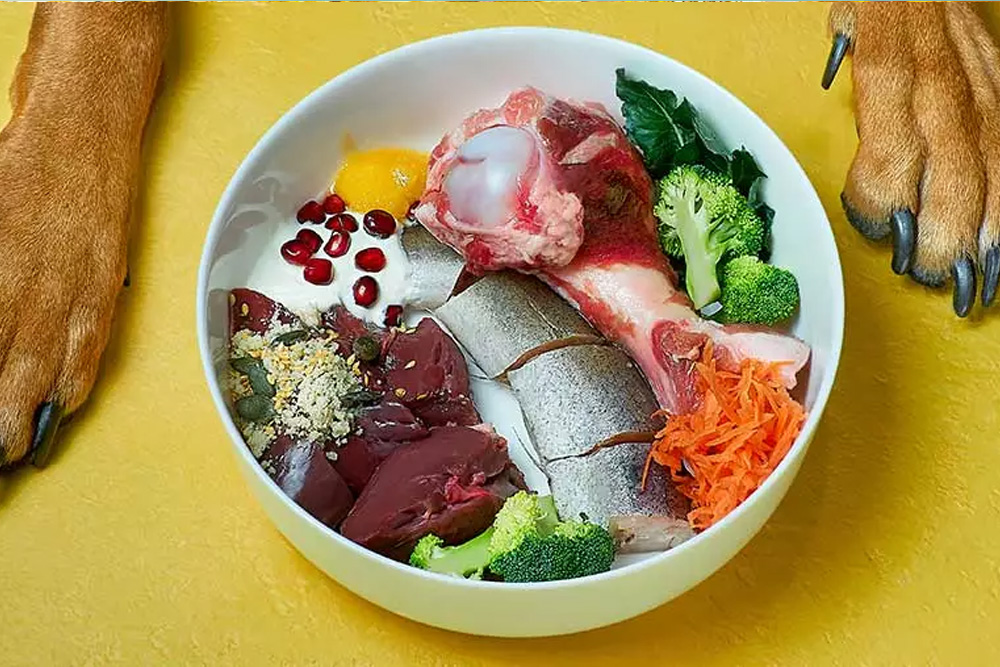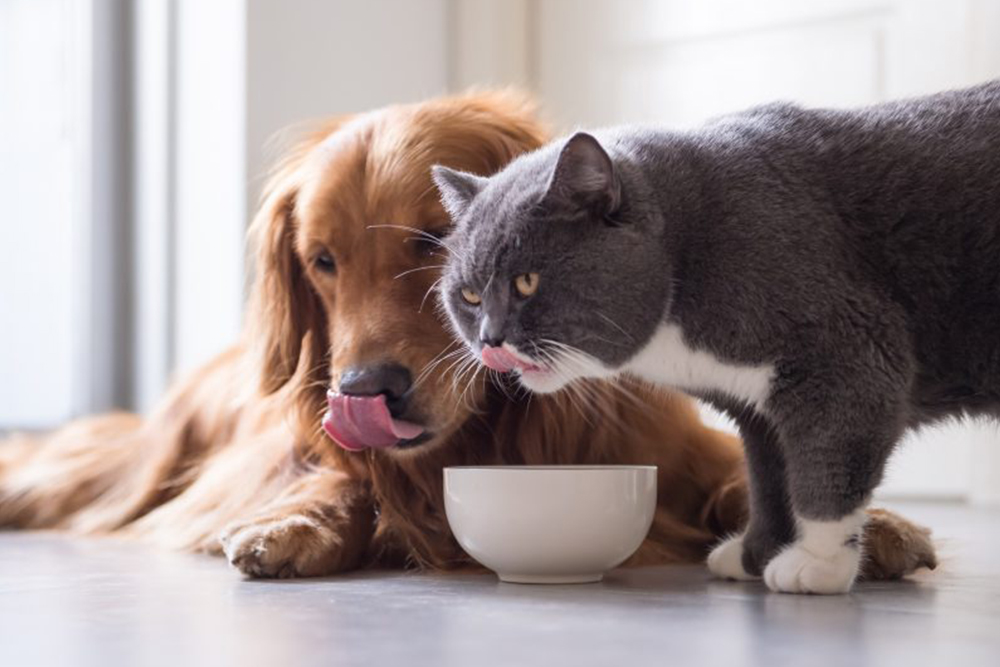Don’t Wait: Improve Your Pets Skin and Fur Health with These Foods

As a pets owner, you want to do everything you can to keep your furry friend healthy and happy. One important aspect of pet health that is often overlooked is the role of nutrition in maintaining healthy skin and fur. A healthy diet rich in essential nutrients can help protect your pet’s skin and coat, keeping it shiny and soft.
In this article, we’ll explore the foods and nutrients that can help improve your pet’s skin and fur health. We’ll also discuss some common myths about pet nutrition and provide tips for choosing a high-quality diet for your pet. By understanding the importance of nutrition in maintaining healthy skin and fur, you can make informed decisions about your pet’s diet and help ensure their long-term health and well-being.
Related articles
1- Treat Your Pet Like Family: 10 Fun Activities to Do Together
2- Keep Your Pet Healthy and Happy with Regular Veterinary Check-ups
3- How to Keep Your Pets Mind Sharp with Unique Games and Foods!
4- From Fat to Fit: Home Exercises for Your Obese Pet
So if you want to learn everything you need to know about this important topic, keep reading!
Foods for Healthy Skin and Fur in Pets
A healthy diet plays an essential role in caring for your pet’s skin and coat. Diets rich in omega-3 fatty acids, protein, vitamins, and minerals can help protect the skin and coat and keep it shiny ¹. Some specific nutrients to look for include:
- Omega-3 fatty acids: Omega-3 fatty acids (DHA and EPA) help protect the skin and coat and keep it shiny. EPA also helps combat inflammation. Sources of omega-3 fatty acids include fish and algal oils and flaxseed ¹.
- Omega-6 fatty acids: Omega-6 fatty acids help give shine to your pet’s coat and replace essential oils in their skin ².
- Biotin: This B-complex vitamin helps promote healthy tissue growth ².
- Copper: Copper helps maintain hair color and keeps the coat soft and shiny ².
- Vitamin E: Vitamin E is a natural antioxidant that helps protect your pet’s skin against free radicals that could be damaging to skin cells ².
In addition to these specific nutrients, feeding your pet a well-rounded diet with a good balance of vitamins, minerals, protein, and carbohydrates can help protect them from skin and coat troubles ².
Foods That Can Be Harmful to Pets
While there are many foods that can benefit your pet’s health, there are also some foods that can be harmful. Some common foods that can be toxic to pets include chocolate, grapes, raisins, onions, garlic, avocado, macadamia nuts, and xylitol (a sugar substitute found in many sugar-free gums and candies). It’s important to keep these foods out of reach of your pets and to seek veterinary care immediately if you suspect your pet has ingested something toxic.
In conclusion, providing your pet with a healthy diet rich in essential nutrients can help improve their skin and fur health. However, it’s also important to be aware of foods that can be harmful to pets and to keep them out of reach.
In addition to the foods that can benefit your pet’s skin and fur health, it’s also important to be aware of foods that can be harmful to pets. Some common foods that can be toxic to pets include chocolate, grapes, raisins, onions, garlic, avocado, macadamia nuts, and xylitol (a sugar substitute found in many sugar-free gums and candies) ¹. It’s important to keep these foods out of reach of your pets and to seek veterinary care immediately if you suspect your pet has ingested something toxic.
providing your pet with a healthy diet rich in essential nutrients can help improve their skin and fur health. However, it’s also important to be aware of foods that can be harmful to pets and to keep them out of reach. By being attentive to your pet’s dietary needs and avoiding toxic foods, you can help ensure that they stay healthy and happy.
Foods and Nutrients for Healthy Skin and Fur in Dogs
A healthy diet plays an essential role in caring for your dog’s skin and coat. Diets rich in omega-3 fatty acids, protein, vitamins, and minerals can help protect the skin and coat and keep it shiny. Some specific foods that can benefit your dog’s skin and fur health include:
- Chia seeds: Chia seeds are a rich source of B vitamins, calcium, copper, iron, magnesium, phosphorus, potassium, protein, and zinc. They also contain alpha-linolenic acid (ALA), a plant-based form of omega-3 fatty acids ¹.
- Eggs: Eggs are a great source of bioavailable protein. They also contain lutein, which helps keep skin well hydrated and plays an important role in tissue repair. Egg yolks are a valuable source of biotin, a B vitamin that helps promote healthy skin and coats ¹.
- Almonds: Almonds contain the entire vitamin E family, tocopherols and tocotrienols. They are also an excellent source of B vitamins, copper, manganese, magnesium, zinc, and bioflavonoids ¹.
- Coconut: Coconut contains medium-chain saturated fats that can act as anti-inflammatory agents to decrease bacterial growth, irritation, and inflammation in the body ¹.
In addition to these specific foods, feeding your dog a well-rounded diet with a good balance of vitamins, minerals, protein, and carbohydrates can help protect them from skin and coat troubles.
Common Myths About Pet Nutrition
There are many myths about pet nutrition that can be confusing for pet owners. Here are some common myths about pet nutrition:
- Myth: Grain-free diets are better for dogs: There is no evidence to support the claim that grain-free diets are better for dogs. In fact, some grain-free diets have been linked to an increased risk of heart disease in dogs.
- Myth: Raw food diets are healthier for dogs: Raw food diets can be risky for both dogs and their owners due to the potential for bacterial contamination. There is no scientific evidence to support the claim that raw food diets are healthier for dogs.
- Myth: Dogs need variety in their diet: Dogs do not need variety in their diet. In fact, frequently changing your dog’s diet can cause digestive upset. It’s important to find a high-quality diet that meets your dog’s nutritional needs and stick with it.
Providing your dog with a healthy diet rich in essential nutrients can help improve their skin and fur health. However, it’s important to be aware of common myths about pet nutrition and to make informed decisions about your dog’s diet based on scientific evidence.
Foods and Nutrients for Healthy Skin and Fur in Cats
A healthy diet plays an essential role in caring for your cat’s skin and coat. Diets rich in omega-3 fatty acids, protein, vitamins, and minerals can help protect the skin and coat and keep it shiny. Some specific foods that can benefit your cat’s skin and fur health include:
- Omega-3 fatty acids: Omega-3 fatty acids can reduce inflammation and promote a healthy skin and coat. Good sources of omega-3s for cats include fish oil and krill oil ¹.
- Protein: Protein is essential for skin and haircoat development. If food does not have adequate protein, then the cat may develop areas of hair loss or the hair may lose color. The haircoat may become dry, dull, and brittle ³.
- Essential fatty acids: Essential fatty acids are critical for good feline skin and haircoat quality ³.
In addition to these specific nutrients, feeding your cat a well-rounded diet with a good balance of vitamins, minerals, protein, and carbohydrates can help protect them from skin and coat troubles.
Common Myths About Pet Nutrition
There are many myths about pet nutrition that can be confusing for pet owners. Here are some common myths about pet nutrition:
- Myth: Grain-free diets are better for cats: There is no evidence to support the claim that grain-free diets are better for cats. In fact, some grain-free diets have been linked to an increased risk of heart disease in cats.
- Myth: Raw food diets are healthier for cats: Raw food diets can be risky for both cats and their owners due to the potential for bacterial contamination. There is no scientific evidence to support the claim that raw food diets are healthier for cats.
- Myth: Cats need variety in their diet: Cats do not need variety in their diet. In fact, frequently changing your cat’s diet can cause digestive upset. It’s important to find a high-quality diet that meets your cat’s nutritional needs and stick with it.
Providing your cat with a healthy diet rich in essential nutrients can help improve their skin and fur health. However, it’s important to be aware of common myths about pet nutrition and to make informed decisions about your cat’s diet based on scientific evidence.
In conclusion, providing your pet with a healthy diet rich in essential nutrients can help improve their skin and fur health. By being attentive to your pet’s dietary needs and avoiding toxic foods, you can help ensure that they stay healthy and happy. It’s also important to be aware of common myths about pet nutrition and to make informed decisions about your pet’s diet based on scientific evidence. By taking the time to learn about this important topic, you can help ensure that your furry friend stays healthy and happy for years to come.
Sobre o Autor




0 Comentários